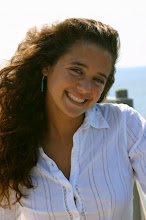
Before Mike Galvan got into triathlon he weighed over 200 pounds. He had also been smoking two to three packs of cigarettes a day for 10 years. Then he saw his friend complete her first triathlon. After that he immediately quit smoking, started following a training regimen and three months later completed his first race.
Today, Galvan, 34, coaches the NYU Triathlon Club which helps both students and alumni get into shape and discover a healthier way of life. Most of the 70 members are upperclassmen, graduate students and alumni. While the regimen can be demanding, people keep coming back year after year. Why? The reason is simple: great results and the support of a great coach.
“I want to make sure that the athlete is getting as much instruction as possible so that he or she can improve,” Galvan said.
A triathlon is a long-distance race consisting of three phases: swimming, bicycling and running.
The sport and interest among students has grown, Galvan said. Most colleges have triathlon clubs.
The sport’s participation is at its peak, according to USA Triathlon’s website. In 2009 membership count rose above 115,000. The membership range from 1993 to 2000 was 15,000 to 21,000. Quite the surge.
Galvan has been coaching the NYU Triathlon Club since 2006. He also coaches the Asphalt Green Triathlon Club, Team in Training and Tri Latino.
NYU has 25 clubs and 10 varsity teams listed on its athletic site. Unlike most of them, the Triathlon Club welcomes people of all ages and fitness levels. The current age range on the team is 18 to 70. All members need to do is pass the mandatory physical to join.
While usually the club is given an unlimited amount of new physicals, this year it was limited to 30. A physical is a medical examination done to make sure the athlete is fit to train. Since there were over 50 requests to join, most were put on a waitlist. For this reason Galvan asks that all members commit entirely to the team. This means no missing practice unless sickness or tragedy strikes.
Practices are Mondays, Wednesdays and Fridays from 6:15 a.m. to 7:30 a.m. If this seems brutal in the fall, imagine spring semester when snow is coming down. But early practices are the best way to accommodate most of the team.
“You’re done with your workouts by 7:45 a.m.,” Galvan said. “It gives you the rest of the day to get things done and enjoy yourself.”
His favorite thing about the NYU club is the closeness among members.
“You start seeing people helping each other,” Galvan said.
Newcomer Jessica Kim, 18, is already creating bonds.
“I've been able to talk to some people in the Wagner school which is nice because I'm thinking about going into non-profit or social work in the future,” Kim said. “Others have been able to give me advice about what classes to take.”
But it’s not just the members she likes.
“I really like the fact that Mike [Galvan] memorized everyone's name after the first couple of practices,” Kim said. “Some might think he's harsh, but I know he really wants to see us progress.”
Evidently the pain is worth the prize. Progress is seen every day.
“I’m leaner and have more energy during the off-days,” Kim said.
The emotional progress is just as important. Athletes become more confident and self aware as training progresses, which enables them to improve their abilities, Galvan said.
When Sarah Liedel joined the team last year, she could barely swim a lap. Now she’s an advanced/intermediate swimmer who completed three triathlon races in the past year.
Galvan helped by giving her one on one advice. He also motivated her to spend additional time in the pool practicing.
It’s all about self improvement. They don’t even need to race. All Galvan asks is that Triathlon is something they do for themselves.
“Everyone brings something special to the equation,” Galvan said.
But none is more remarkable than Jackie Blachman-Forshay. Blachman-Froshay, 20 and a junior in the School of Social Work, was diagnosed with thyroid cancer in October. She had surgery Nov. 9 and was back at practice two weeks after.
While she was gone the coach kept the team updated and stayed in constant contact with her. She was warmly welcomed back and carefully watched over by Galvan during practice.
“Don’t push it,” Galvan would say. “Take it easy.”
“I love coming to practice because it’s become my one ‘normal thing’,” Blachman-Forshay said.
The first team race is the Pawling triathlon on June 5. The event is already open for entry and at least half of the team has already signed up. It’s only fall semester, but the team is already visibly stronger, Galvan said.
“I can’t wait to see what they accomplish at Pawling.”

No comments:
Post a Comment